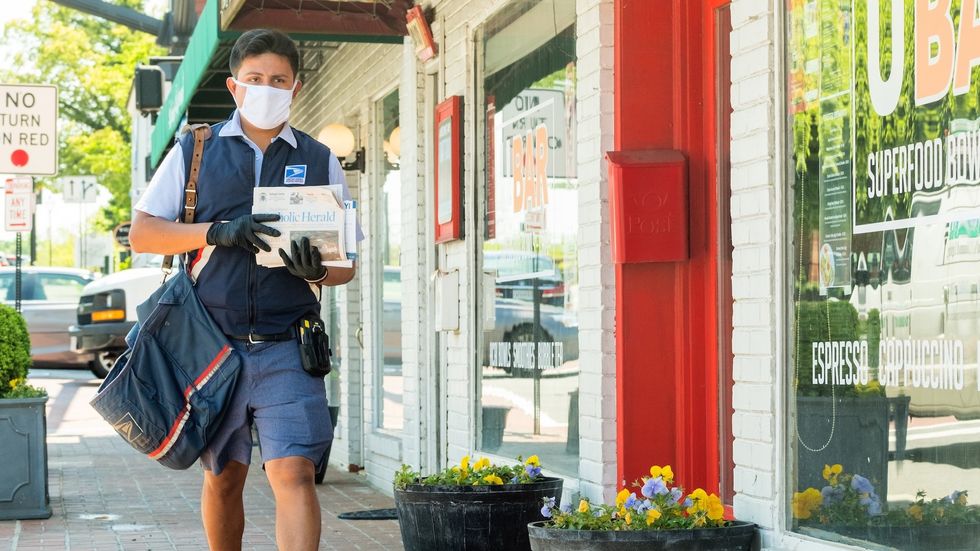When I first saw that the United States Postal Service was a trending topic on social media last week, I was taken by surprise. Sure, there have been scandals surrounding several federal agencies over the last few years during the Trump presidency, but the USPS just seems so...docile. It's reliable. It's always there, and that's exactly why none of us ever stop to think about just how much we need it.
Up until now, it didn't seem like the kind of thing that would ever be up for debate, because it is such a basic element of our society.
If you've ordered anything online during the last few months (as I have done out of boredom more times than I'd like to admit), you've probably noticed that your order has taken longer to arrive than expected. This has been a common occurrence across the U.S. since Louis DeJoy was named as the new postmaster general of USPS by the Trump-appointed board of governors. DeJoy has financial ties to private companies that compete with the USPS and has never worked as a postal employee. He has made several changes to the Postal Service since he was appointed, such as removing top employees and banning workers from working overtime to finish any leftover deliveries.
These efforts have seemingly only been implemented in order to cut costs, and have not only increased wait times for consumers but have created a sense of tension and chaos within the agency.
Now, you may think that it technically isn't the end of the world that the USPS has been hit hard over the last few months. Surely, private agencies such as FedEx and UPS can pick up the slack, right? Not quite. Seeing as they are private agencies that do not receive federal funding, they are much smaller in scope than the USPS, and simply don't have the capacity to take over for them. In fact, the USPS ships more items to Americans in two weeks than FedEx and UPS do in a year, combined. The USPS processes and delivers over 470 million mail items every single day.
Where the drama really started is when the topic of mail-in voting was brought up. At this point, most state governments are in agreement that the safest way for voting to take place this November— in the midst of a pandemic that America has yet to get under control—is mail-in ballots, which should be made available to all citizens.
This past week, it was reported that Postmaster General DeJoy has chosen to remove several mail-sorting machines that could be sorting ballots this fall, for which he has faced widespread criticism. His changes to the efficiency and reliability of the USPS also does not bode well to how voting may play out in just a few months. President Donald Trump has recently attacked mail-in voting, calling them unreliable — a statement that is largely unfounded. What's more, most of the conflict surrounding the new round of coronavirus relief funding is rooted in the Democrats' inclusion of $3.5 billion to go toward mail-in voting, as well as $10 billion for the Postal Service. Trump has said that he will not accept this deal — thus withholding needed funds for U.S. citizens as COVID continues — because he believes mail-in voting will create more voter fraud (which, once again, is false).
In a time when COVID-19 is pushing most people to stay home for their own wellbeing rather than go to voting machines that have been used by hundreds of others that same day, it is irresponsible to be pushing false narratives regarding mail-in voting. It is much more irresponsible to keep resources not only from a federal agency but also from everyday Americans who need assistance right now. The longer it takes for our president to accept the necessity of and facts surrounding mail-in voting, the longer he is putting off the already unraveling USPS from being able to deliver and receive ballots in time in what will be a life-changing election.













